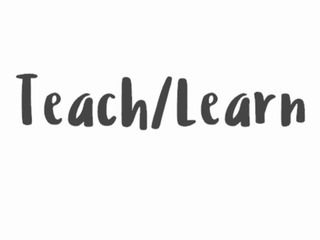You are Czech or Slovak, right? Learning English? Hmmm, I thought so 🙂
I’m Richard, a native British English speaker.
Improving your English is not just about learning grammar, studying books and taking exams. Firstly I believe it should be fun and have a purpose. That’s why I offer help for English learners starting with conversations about motivation, reasons for learning English and goals. I’m not so much of an English teacher in the classic sense but more someone who coaches you to help yourself, listens to what you want and instructs and teaches where needed. See my previous posts here.
A scientific approach is my method and I like to use techniques that give you space and freedom to think for yourself; the only real way to learn anything properly.
“It’s not just what you know, but how you practice what you know that determines how well the learning serves you later.”
― Peter C. Brown, Make It Stick
How do I better understand fast English speakers? 
Well, that depends on whether you are listening to real people in the physical world or if you mean watching tv/listening to the radio etc. Also, if it’s real people, are you listening to engage in conversation with them or just to listen to what they say? Sometimes you have no option!
Quick tips for improving the speed of your listening comprehension
So, when you are listening to podcasts and cds or watching dvds or on demand video etc. you obviously have the option to be able to pause and rewind to playback sections until you understand. If you use something like Audible for listening to audiobooks you have the option to slow down the speed. This is the key to learning to understand faster speech. How do you that? Read on..
Step 1 –
Start by listening through to a short section, maybe only a sentence or two. Try, and I know it’s hard, to NOT translate into your native language as you’re listening. Just listen for words you understand.
Step 2 –
Then listen again and try to pick out words that you may recognize but don’t know the meaning of. Write them down, find out their meanings and listen again. This is where zou may encounter a few of the dreaded phrasal verbs. Fear not, I will have an article for you soon on the most used phrasal verbs and the best way to memorize them.
Step 3 –
So now you should be starting to understand a little better but there are still parts that you can’t work out. Firstly, don’t stress about this because as a native English speaker I often find situations, usually in music, where I realize that, after 30 years of listening and singing along to a song, I was singing the wrong words! The reason for this is that English is a language that has such smooth connected speech that it’s difficult to pick out one word from another. This is why it is not recommended to learn vocabulary in single isolated words. Although sometimes it’s fine to learn a new word in isolation, it’s much better if you can learn new vocabulary in collocations (words that often go to together such as ‘Football match ‘ or ‘Best regards’. When you learn the word ‘best’ you hear it as b-e-s-t however in connected speech, in a collocation like ‘best regards’, the last letter T is usually dropped and what you hear is ‘besregards’. “Give my besregards to Jim”
Step 4 –
After you’ve had another listen and tried to work out some more of the connected speech you can then go ahead and look at the subtitles if available. Then as you continue your practice, begin to speed up the audio.
But what about listening to real people in the real world? 
in the case of listening to real people whom you are actively engaging in conversation with, you have to ask them to slow down and repeat.
“Can you repeat that please?”
”Would you mind speaking a little slower please, it will give me a better chance of understanding you.”
“I’m sorry, I didn’t catch that, please could you say it again for me?”
if you’re talking to native English speakers and they don’t understand you they may use…
”say it again” but often. At least where I’m from in the north of England, it will sound like “sayagen”
The traditional and more polite version is “pardon?”
So, that’s a long answer but I hope it helps. I have a lot more help for learners of English here: Almost Everything You Need to Learn English.











 a traditional English Christmas dinner which we took and ate at Radka’s father’s house. I know most English people have Turkey at Christmas but that became a tradition with the arrival of American soldiers during the second world war, before that any bird would do; chicken, goose, pheasant, turkey or duck. Radka’s father cooked a duck and we did the vegetables – carrots, parsnips, leaks in white sauce, as well as my favourite ‘pigs in blankets’ (sausages wrapped in bacon and roasted in the oven). Anyway, enough of that, it’s making me hungry.
a traditional English Christmas dinner which we took and ate at Radka’s father’s house. I know most English people have Turkey at Christmas but that became a tradition with the arrival of American soldiers during the second world war, before that any bird would do; chicken, goose, pheasant, turkey or duck. Radka’s father cooked a duck and we did the vegetables – carrots, parsnips, leaks in white sauce, as well as my favourite ‘pigs in blankets’ (sausages wrapped in bacon and roasted in the oven). Anyway, enough of that, it’s making me hungry. I have never stuck to mine, EVER! I’m pretty sure (quite sure) that’s down to my habits but that’s another topic for another day. This year I have decided to keep it simple, so instead of giving myself the unrealistic target of running three times a week (which I would like to do) I will run just once a week and it’s in my diary because if it’s not in my diary it won’t get done! I will be better organized this year and have timetabled a space every week to plan the following week and look at the month ahead. This might sound obvious and very normal to you but to someone as spontaneous as me it has always seemed like a spoiler, a curtailment of my enthusiasm for the unexpected surprises of life.
I have never stuck to mine, EVER! I’m pretty sure (quite sure) that’s down to my habits but that’s another topic for another day. This year I have decided to keep it simple, so instead of giving myself the unrealistic target of running three times a week (which I would like to do) I will run just once a week and it’s in my diary because if it’s not in my diary it won’t get done! I will be better organized this year and have timetabled a space every week to plan the following week and look at the month ahead. This might sound obvious and very normal to you but to someone as spontaneous as me it has always seemed like a spoiler, a curtailment of my enthusiasm for the unexpected surprises of life.












